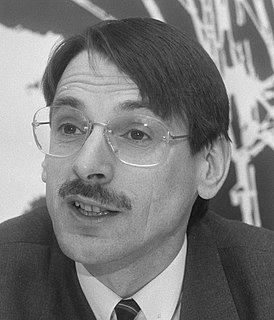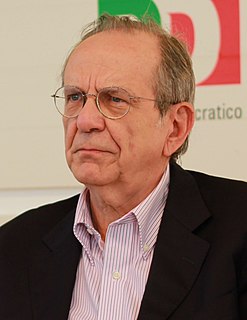
The economy of Japan is a highly developed free-market economy. It is the third-largest in the world by nominal GDP and the fourth-largest by purchasing power parity (PPP), and is the world's second largest developed economy. Japan is a member of the G7 and G20. According to the International Monetary Fund, the country's per capita GDP (PPP) was at $41,637 (2020). Due to a volatile currency exchange rate, Japan's GDP as measured in dollars fluctuates sharply. Accounting for these fluctuations through the use of the Atlas method, Japan is estimated to have a GDP per capita of around $39,048. The Japanese economy is forecast by the Quarterly Tankan survey of business sentiment conducted by the Bank of Japan. The Nikkei 225 presents the monthly report of top blue chip equities on Japan Exchange Group, which is the world's third-largest stock exchange by market capitalisation. In 2018, Japan was the world's fourth-largest importer and the fourth-largest exporter. It has the world's second-largest foreign-exchange reserves worth $1.3 trillion. It ranks 29th on Ease of doing business index and 5th on Global Competitiveness Report. It ranks first in the world in the Economic Complexity Index. Japan is also the world's third-largest consumer market.

A developed country is a sovereign state that has a high quality of life, developed economy and advanced technological infrastructure relative to other less industrialized nations. Most commonly, the criteria for evaluating the degree of economic development are gross domestic product (GDP), gross national product (GNP), the per capita income, level of industrialization, amount of widespread infrastructure and general standard of living. Which criteria are to be used and which countries can be classified as being developed are subjects of debate. A point of reference of 20,000 USD in 2021 USD nominal GDP per capita for the IMF is a good point of departure, it is a similar level of development to the United States in 1960. Some countries with lower nominal gdp per capita could be considered as developed given that their PPP gdp per capita is much higher to their nominal gdp per capita, therefore having a higher standard of living than would be considered if one only looks at nominal gdp.

Mervyn Allister King, Baron King of Lothbury,, is a British economist and public servant who served as the Governor of the Bank of England from 2003 to 2013. He is a School Professor of Economics at the London School of Economics. He is also the Chairman of the Philharmonia.
Economic forecasting is the process of making predictions about the economy. Forecasts can be carried out at a high level of aggregation—for example for GDP, inflation, unemployment or the fiscal deficit—or at a more disaggregated level, for specific sectors of the economy or even specific firms.Economic forecasting is a measure to find out the future prosperity of a pattern of investment and is the key activity in economic analysis. Many institutions engage in economic forecasting: national governments, banks and central banks, consultants and private sector entities such as think-tanks, companies and international organizations such as the International Monetary Fund, World Bank and the OECD. A broad range of forecasts are collected and compiled by "Consensus Economics". Some forecasts are produced annually, but many are updated more frequently.

José Ángel Gurría Treviño, also known as Ángel Gurría, is a Mexican economist and diplomat. From 1 June 2006 to 31 May 2021, he was the secretary-general of the Organisation for Economic Co-operation and Development (OECD).

The National Institute of Economic and Social Research (NIESR), established in 1938, is Britain's oldest independent economic research institute. The institute is a London-based independent UK registered charity that carries out academic research of relevance to business and policy makers, both nationally and internationally. The Institute receives no core funding from government or other sources. The bulk of funding comes from research projects awarded or commissioned by a variety of sources, all acknowledged in full in their published materials. The terms of their grants prohibit any involvement from funding bodies in determining or influencing content. Funders include government departments and agencies, the research councils, particularly the Economic and Social Research Council (ESRC), charitable foundations, the European Commission, and the private sector. The Institute are partners in three ESRC research centres, along with ESCoE, which is funded by the Office for National Statistics.

Dr. Nasser Saidi is a Lebanese politician and economist who served as the Minister of Economy and Industry and the Vice Governor for the Lebanese central banks for several terms in the last decade of the 20th century.

Jozef Marie Mathias "Jo" Ritzen is a retired Dutch politician of the Labour Party (PvdA) and economist.
A tax haven is a country or place with very low "effective" rates of taxation for foreign investors. In some traditional definitions, a tax haven also offers financial secrecy. However, while countries with high levels of secrecy but also high rates of taxation, most notably the United States and Germany in the Financial Secrecy Index ("FSI") rankings, can be featured in some tax haven lists, they are not universally considered as tax havens. In contrast, countries with lower levels of secrecy but also low "effective" rates of taxation, most notably Ireland in the FSI rankings, appear in most § Tax haven lists. The consensus around effective tax rates has led academics to note that the term "tax haven" and "offshore financial centre" are almost synonymous.

The economy of the Republic of Ireland is a highly developed knowledge economy, focused on services in high-tech, life sciences, financial services and agribusiness, including agrifood. Ireland is an open economy and ranks first for high-value foreign direct investment (FDI) flows. In the global GDP per capita tables, Ireland ranks 4th of 186 in the IMF table and 4th of 187 in the World Bank ranking.
William R. White is a Canadian economist who was the chairman of the Economic and Development Review Committee at the Organisation for Economic Co-operation and Development (OECD) from 2009 to 2018. He is famous for flagging the wild behaviour in the debt markets before the global storm hit in 2008.
Michael Ward was a British economist and statistician who contributed significantly to the evolution of the international statistical system in the post-war period.
Patrick Lynch MRIA was an Irish economist. He believed in economic development and the co-ordination of government policy, including fiscal, social and monetary measures to invest in education and joining the European Economic Community. He favoured empirical education economics in Ireland and development economics flowing from investment in science.
Rakesh Mohan is an Indian economist and former Deputy Governor of Reserve Bank of India. He is the Vice Chairperson of Indian Institute for Human Settlements. He was appointed in November 2012 as an Executive Director of the IMF for a three-year term, and in April 2010, he joined Nestlé India, as a non-executive director.
John Christopher Roderick Dow, FBA (1916–1998) was a British applied economist whose career ran from 1945 until his death in 1998.

Kim Choong-soo is a South Korean economist and politician who was Governor of the Bank of Korea from April 2010 until March 2014.

The Organisation for Economic Co-operation and Development is an intergovernmental economic organisation with 38 member countries, founded in 1961 to stimulate economic progress and world trade. It is a forum of countries describing themselves as committed to democracy and the market economy, providing a platform to compare policy experiences, seek answers to common problems, identify good practices and coordinate domestic and international policies of its members. Generally, with the exception of Mexico and Colombia, OECD members are high-income economies with a very high Human Development Index (HDI) and are regarded as developed countries. As of 2017, the OECD member countries collectively comprised 62.2 % of global nominal GDP and 42.8 % of global GDP at purchasing power parity. The OECD is an official United Nations observer.

Pier Carlo Padoan is an Italian economist who served as Minister of Economy and Finances of Italy from 2014 to 2018.

Gabriel Zucman is a French economist known for his research on tax havens and corporate tax havens from his 2015 book The Hidden Wealth of Nations: The Scourge of Tax Havens. Zucman is also known for his work on the quantification of the financial scale of base erosion and profit shifting (BEPS) tax avoidance techniques employed by multinationals in corporate tax havens, through which he identified Ireland as the world's largest corporate tax haven in 2018. Zucman showed that the leading corporate tax havens are all OECD–compliant, and that tax disputes between high–tax locations and havens are very rare. Zucman's papers are some of the most cited papers on research into tax havens. In 2018, Zucman was the recipient of the Prize for the Best Young Economist in France, awarded by the Cercle des économistes and Le Monde in recognition of his research on tax evasion and avoidance and their economic consequences. He is currently an Associate Professor of Public Policy and Economics at the University of California, Berkeley‘s Goldman School of Public Policy.
Dhammika Dharmapala is an economist who is the Paul H. and Theo Leffman Professor of Law at the University of Chicago Law School. He is known for his research into corporate tax avoidance, corporate use of tax havens, and the corporate use of base erosion and profit shifting ("BEPS") techniques.











